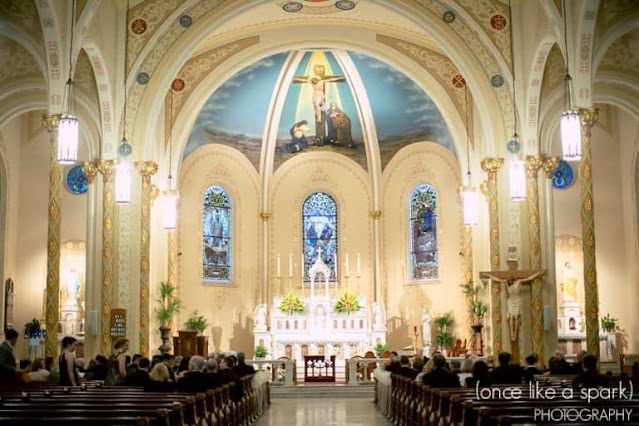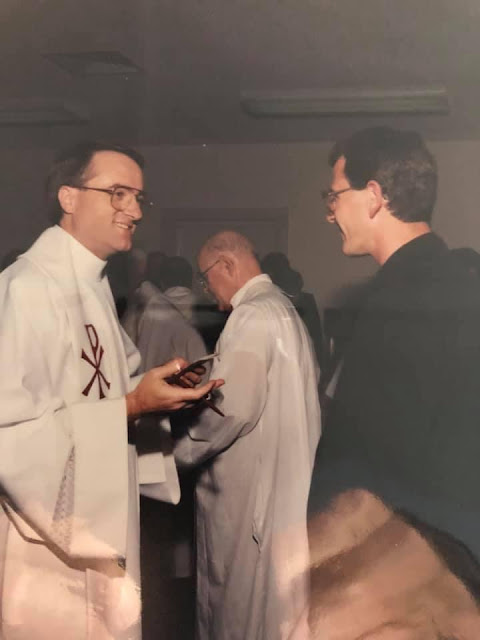Ed Condon who use to work for the Catholic News Agency owned by EWTN, now has his own religious news source called “The Pillar.” It is excellent and I love Condon’s way of writing and reporting.
This is what he has to say about the Holy Father’s pick for the head of the Congregation for Divine Worship:
The nomination was met with a chorus of takes suggesting, variously, that Roche, 71, is about to usher in a new era of progressive liturgical reform, or that he is clearly a place-holder, destined to serve a single term before the newly named secretary of the congregation, Bishop Viola, takes over and, well, ushers in a new era of progressive liturgical reform.
As you can imagine, I think both of those takes are likely just wishcasting by the people making them. I also think that suggesting an 84-year-old pope is choosing department heads with an eye to what he’ll do when he’s 89 is just plain cracked.
Pope Francis has decidedly shunned the liturgy wars which obsess some sections of the Church, and I think his choice of a man known for getting along and getting on with things is probably more about avoiding a big fight at the end of his pontificate than starting one.
My comments:
I have always appreciated the liturgy, in whatever form, as the means to worship God, thank Him for the gift of salvation and the means by which He brings that about and to receive our Lord in Holy Communion and in that order.
I am a child of the cusp having been formed liturgically by the pre-Vatican II Mass, mostly its Sunday Low Form and then by the transitional liturgies between 1966 to 1969 which greatly excited me and then the craziness of the post-conciliar period and the wide diversity of how the ordinary form was celebrated. I’ve lived through and implement Summorum Pontificum and prayed that its celebration would bring more reverence to the Ordinary Form, reverence lost in the transition and implementation of the 1970 missal, especially the lost of awe and wonder, casualness replacing respect and reverence.
But something shifted in me that I did not really reflect upon until rather recently. Prior the the shift, which caught my attention and I liked initially, is that my interest shifted from praising God and adoring Him in the Eucharist and receiving Him, to the manner in which the Mass was changing. And what intrigued me was that the Church wanted to simplify and shorten the Mass. I was fascinated when I heard and saw the first lector proclaim the readings at Mass and I believe the EF lectionary used for that.
What I did not like when lay participation became the catchword was the sloppiness that accompanied those selected to read. They could not read well publicly. And I wondered about their commitment to the Church and what their lives were like apart from the Mass—were they holier than me or was I holier than thou?
As lay ministries expanded to extraordinary Eucharistic Ministers and hoards of them, not well formed or trained and all wearing lay clothes subject to their tastes and changing style, I became concerned. Modesty in dress became an issue and just bad taste scandalously in poor taste.
But there you have, all shifted from God to people and what was done well or poorly. Don’t get me started on the first “folk group” I heard in my parish seated next to the altar and on bar stools with guitar and tambourine. That was just plain horrible and they tried to teach us why this was what Vatican II wanted. If I heard that term one more time, what Vatican II wanted, I thought I would scream.
I have said it before and I’ll say it again, I love the vernacular but appreciate the Latin. I love both forms of the Mass and the type of spirituality that accompanies either. But what I want to see in our Liturgies, no matter the form, is reverent celebrations of it without casualness or banality.
I don’t mind lay lector’s. Train them well, dress them properly and make sure they are Catholics in good standing. The same with Extraordinary Ministers of Holy Communion. I don’t hate Communion under both kinds but the Common Chalice is not the way to go except for exceptional circumstance.
I don’t mind more modern idioms of liturgical music and different forms of accompaniment, just make sure it is quality (and this is where I think the bishops have let us down in not demanding that new liturgical music and settings have an imprimatur of some kind, especially concerning the theology and doctrine of words, but also style of music). There should be a National Hymnal for the vernaculars to keep things on track.
But our worship of God is meant to make us disciples in the world by the manner in which we live our lives not how good we talk about it or complain about this, that or the other.


















































